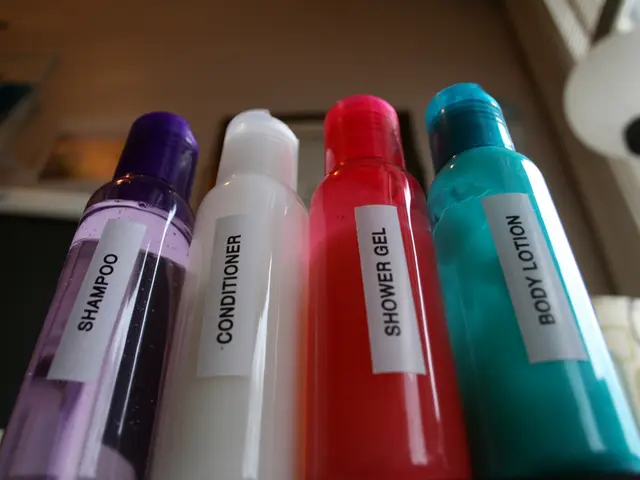Soaring Demand for Fairtrade Products, Especially Cocoa, in Germany
German residents show notable preference for Fairtrade goods - German residents tend to purchase fair trade goods noticeably more frequently compared to others.
The appetite for Fairtrade goods in Germany has surged significantly, especially for products like coffee, bananas, and cocoa. The country's Fairtrade association, based in Cologne, reported a stunning 5% increase in overall sales last year, marking the highest growth in four years.
The popularity of Fairtrade products in supermarkets, discount stores, drugstores, and other retail spaces throughout Germany has been on the rise. "Fairtrade sales are doing wonderfully, even in these economically testing times," expressed Benjamin Drosel, a spokesperson for Fairtrade Germany.
Currently, around one out of every twenty coffee packages and one out of five cocoa products in Germany bear the Fairtrade seal. In 2024, per capita spending on Fairtrade products totaled an average of 35 euros, accumulating around 2.9 billion euros—a 13% increase over the previous year. The surge in sales was largely due to price increases.
According to Claudia Brück of Fairtrade Germany, current global market prices for raw materials like coffee and cocoa are skyrocketing. Regrettably, farmers don't always reap the benefits of these high prices. Primary causes include stock market speculation and harvest losses. "Even in times of high prices, Fairtrade remains crucial."
Brandishing the Fairtrade seal allows companies to gain an edge with customers—but they must abide by Fairtrade criteria, including ensuring fair production and trade practices. These standards are designed to enhance working and living conditions in producer countries, such as Africa and Latin America. Apart from coffee, cocoa, bananas, and cut flowers, this also applies to cotton, juice, tea, rice, honey, and sugar.
- Germany
- Cologne
- Cocoa
- Crop
- Food
- Fairtrade Germany
What's Driving this Demand?
- Consumer awareness: German consumers are becoming increasingly mindful about the environmental and social impact of their purchasing decisions. This has led to strong demand for sustainable and ethically sourced products, such as Fairtrade goods.
- Support for farmers: Consumers value Fairtrade as a means to aid farmers in developing countries, helping them receive fair compensation for their labor and ensuring better living and working conditions.
- Government regulations: The European Union's tough regulations on deforestation and sustainability in agriculture are putting pressure on companies to source their goods responsibly. This, in turn, creates opportunities for Fairtrade-certified farmers in producer countries.
Challenges Ahead
- Climate change: Climate-related challenges, such as droughts, diseases, and extreme weather events, threaten cocoa production and may compromise the efforts of Fairtrade farmers to achieve sustainable practices.
- Market volatility: Cocoa prices are subject to fluctuation due to factors such as speculation and crop yields. Fairtrade farmers must contend with these market forces to secure a decent livelihood.
- Regulatory compliance: Meeting the ever-evolving standards of Fairtrade and European legislation requires substantial time, resources, and expertise from participating farmers and companies.
In conclusion, the growing demand for Fairtrade products in Germany demonstrates a broader global shift towards sustainability, as consumers express their preferences for ethically produced goods. While this trend offers opportunities for farmers and companies in the cocoa industry, challenges such as climate change, regulatory compliance, and market volatility still present significant hurdles to overcome.
- Fairtrade Germany's headquarters is located in Cologne, Germany.
- The demand for Fairtrade cocoa products in Germany has notably increased.
- The surge in sales of Fairtrade products, including cocoa, has led to a 5% increase in overall sales for the association last year.
- German consumers are drawn to Fairtrade products due to their commitment to sustainability, ethical sourcing, and support for farmers in developing countries.
- Meeting the criteria for Fairtrade certification and compliance with European regulations can be difficult and costly for farmers and companies in the cocoa industry.








